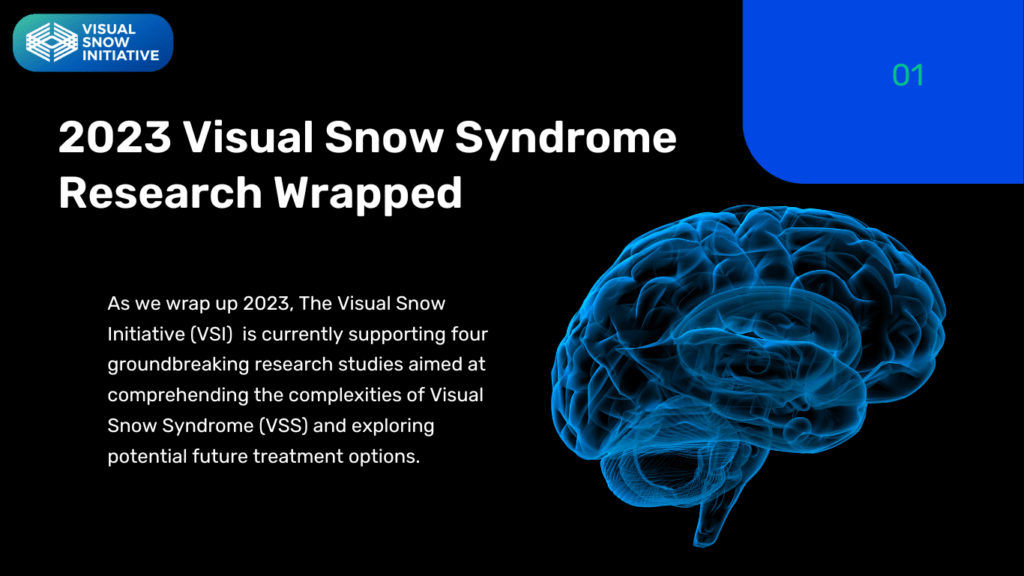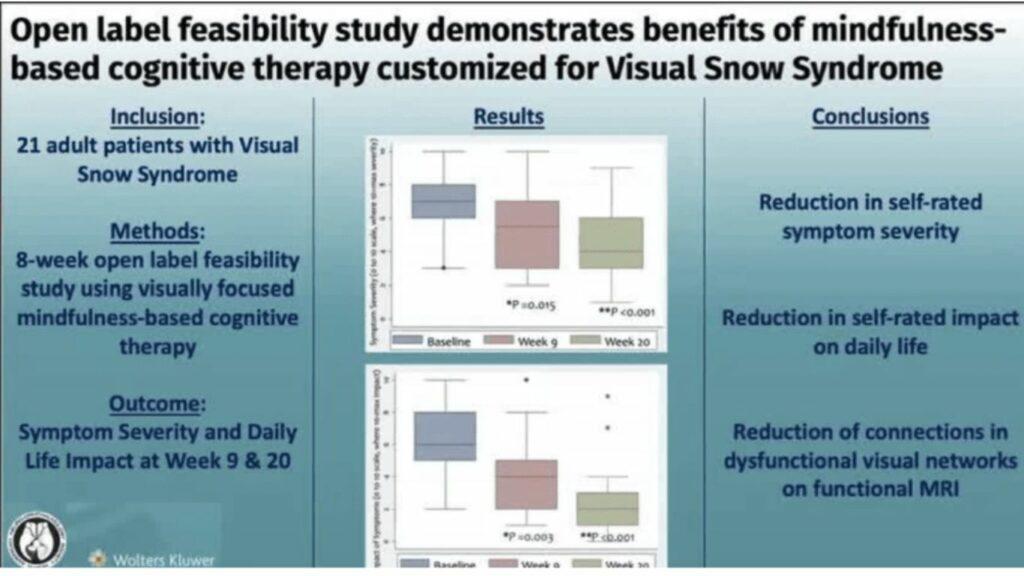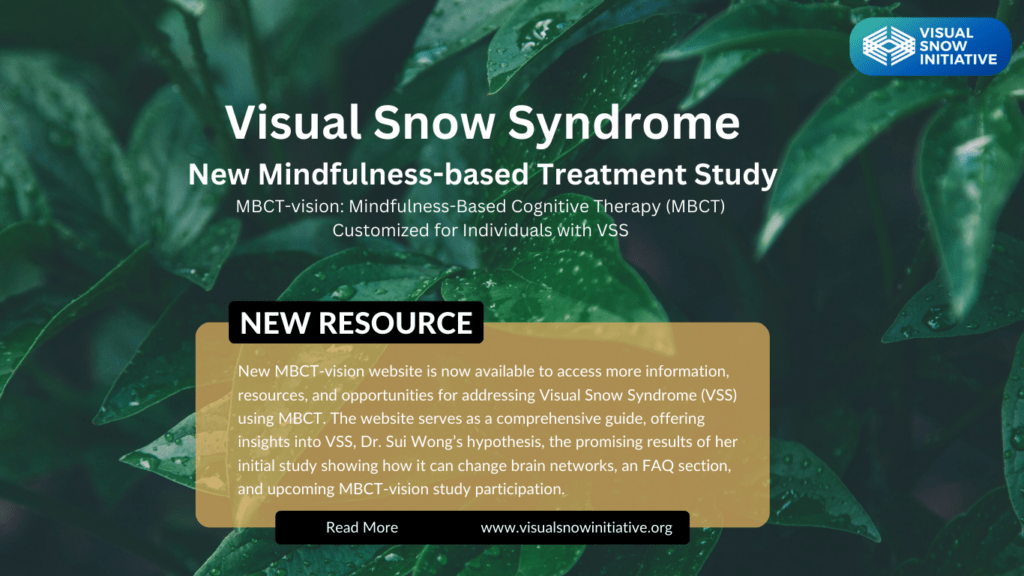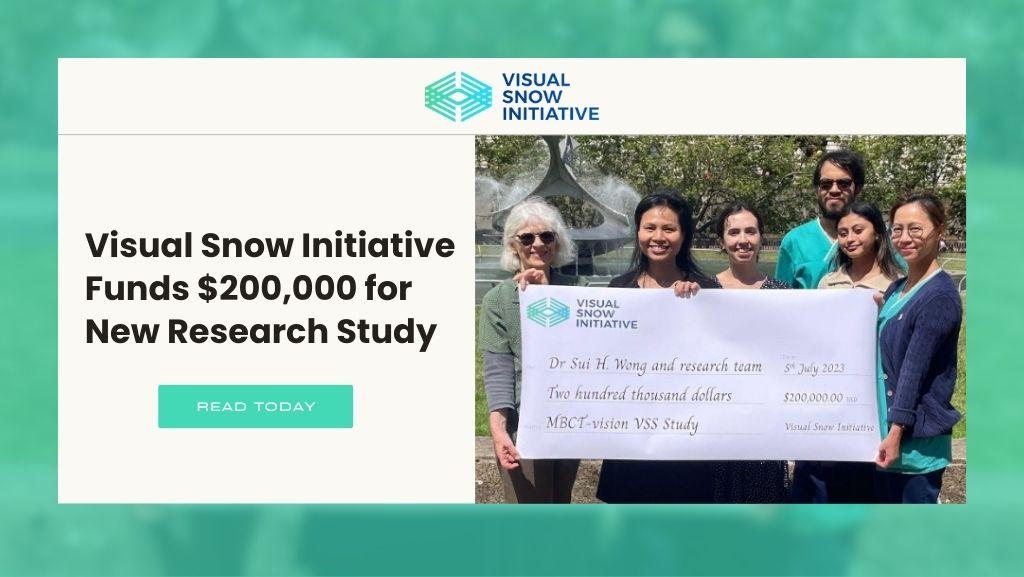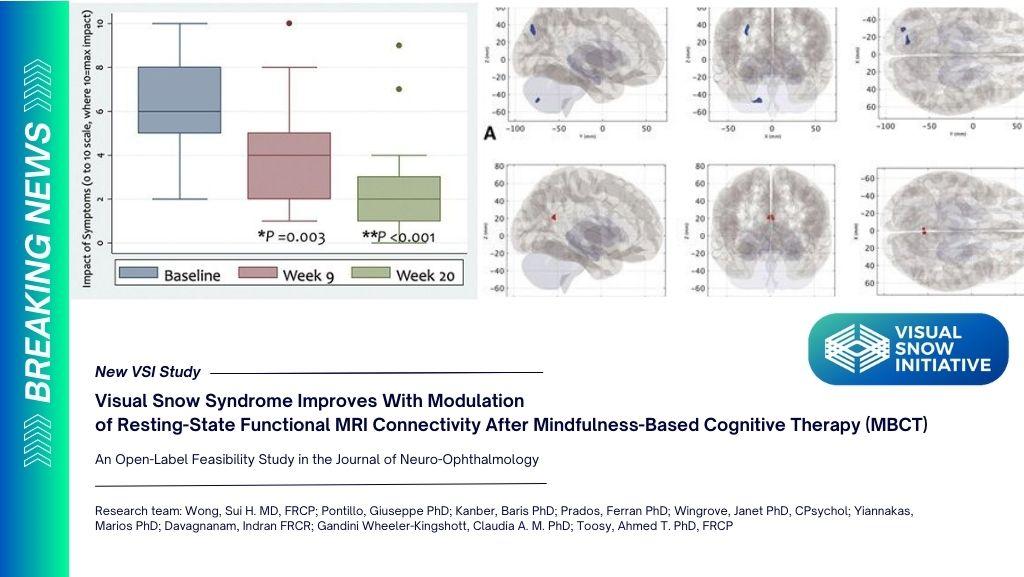Mindfulness-Based Cognitive Therapy (MBCT) for Visual Snow Syndrome
Welcome to our guide on Mindfulness-Based Cognitive Therapy (MBCT) for Visual Snow Syndrome (VSS). This guide will provide you with information about MBCT, including what it is and how it is being studied as an effective treatment option for VSS.


What is MBCT?
Mindfulness-Based Cognitive Therapy (MBCT) offers a noninvasive and multifaceted approach to managing Visual Snow Syndrome (VSS) by modulating dysfunctional visual networks in the brain to help improve (visual and non-visual) VSS symptoms, promoting neuroplasticity, regulating neurotransmitter activity, reducing stress, anxiety, and depression, managing discomfort and sensory disturbances, improving emotional regulation, alleviating pain, and encouraging neural changes linked to enhancements in immune function. By targeting these interconnected physiological mechanisms, MBCT may help improve outcomes and quality of life for individuals living VSS. In recent studies, MBCT has been explored as a treatment option specifically for VSS.
Research indicates that MBCT can help effectively address neurological conditions, such as VSS, through its impact on neurotransmitters and other interconnected physiological mechanisms, as well as by inducing neuroplasticity. MBCT can initiate neuroplastic functional changes in the brain, promoting the growth of new neural connections and rewiring existing ones. Mindfulness-based cognitive practices have also been associated with neurotransmitter regulations, specifically alterations in neurotransmitter levels such as serotonin, a crucial brain chemical associated with the biological basis of VSS. Additionally, these practices can help reduce the activation of the body’s stress response system. This result can lead to lower levels of stress hormones, such as cortisol, which have been implicated in neurodegenerative processes and cognitive decline. Moreover, this approach may help regulate the functioning of the limbic system and have effect on the activation of the body’s endogenous opioid system, allowing individuals to process sensations without becoming overwhelmed by them. This is an important consideration when managing sensory-processing disorders that can affect cognition, such as VSS.
MBCT has recently been modified by Neurologist, Neuro-ophthalmologist, Consultant for St Thomas’ NHS Foundation Trust and Moorfields Private Eye Hospital, and Vice President of the UK Neuro-Ophthalmology Society, Dr. Sui Wong, to treat both the visual and non-visual symptoms of VSS (see below). Dr. Wong’s research has employed MRI scans of the brain and patients reports, which have revealed that her modified MBCT program for VSS, known as MBCT-vision, is capable of modulating dysfunctional visual networks in the brain and improving VSS symptoms.
VSS is associated with functional connectivity dysregulation of visual networks, meaning that there is a disruption in the brain networks that involve the visual pathway. The neurological network dysfunction of VSS affects the visual, attentional, and salience networks. The salience network and default mode networks are closely associated, where the default mode network reflects the baseline state of connectivity. MBCT intervention has been shown to modulate these networks. Moreover, similar changes have been observed with MBCT intervention and the reduction of tinnitus, which is often associated with VSS.
Based on previous research demonstrating that intense mindfulness training can alter brain pathways, Dr. Wong, the principal investigator of MBCT intervention for VSS, customized MBCT to target and modulate these dysfunctional visual networks. This MBCT-based treatment option for both the visual and non-visual symptoms of VSS is called MBCT-vision. In addition to the areas addressed using standard MBCT, MBCT-vision also encompasses visual disturbances, such as visual snow/static, afterimages, photophobia, trailing phenomenon, and visual aura.
Research showed that MBCT-vision was correlated with a change in the brain’s visual network and effective at improving both visual and non-visual VSS symptoms for study participants. Participants not only reported symptom reduction, but functional MRI scans also demonstrated measurable changes in brain activity before and after undergoing MBCT-vision.
Objective fMRI measures demonstrated modulation of visual network areas within the brain, suggesting a material change in the underlying condition. This included both visual and extravisual default mode networks within the brain. Empowered with skill sets that enable self-efficacy for managing their condition, patients also reported improvements in both the severity and impact of their VSS symptoms. Findings also supported that the alteration of visual network functional connectivity within visual areas and association networks may underpin disruptions between the integration of internally generated visual information and the processing of salient environmental stimuli, resulting in a constant “noise-like” perception.
Partially-funded by the Visual Snow Initiative (VSI), Dr. Wong and her team’s research marks the first-ever investigation of MBCT intervention and its associated brain functional modifications within the VSS patient population.
Current and Future MBCT Studies
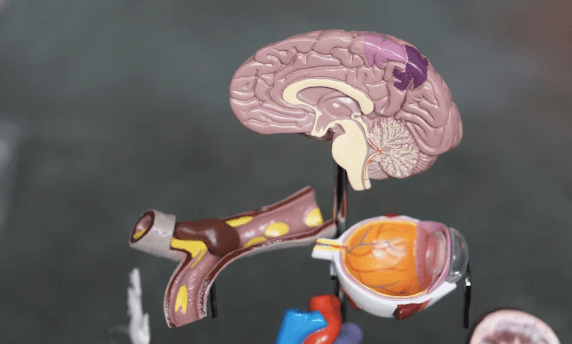
Dr. Wong presented she and her team’s findings at the North American Neuro-Ophthalmology Society (NANOS) Conference. The study, “Visual Snow Syndrome Improves With Modulation of Resting-State Functional MRI Connectivity After Mindfulness-Based Cognitive Therapy: An Open-Label Feasibility Study”, has been be published in the Journal of Neuro-Ophthalmology. These promising results demonstrated the necessity for further investigation into MBCT-vision and its benefits for VSS patients.
Expanding upon Dr. Wong’s first study, VSI has now funded a second, larger Randomized Control Trial (RCT) that will test how MBCT/MBCT-vision can improve the brain’s visual network to filter out the unwanted images to improve or resolve symptoms of VSS. Dr. Wong will also be taking blood samples from study participants that could potentially reveal anomalies in the VSS patient population.
For additional information, please visit the MBCT-vision website or contact: [email protected]
Meet the Team
Dr. Sui Wong, Neurologist, Neuro-ophthalmologist, Consultant for St Thomas’ NHS Foundation Trust and Moorfields Private Eye Hospital, and Vice President of the UK Neuro-Ophthalmology Society, has conducted the first-ever research study in which MBCT/MBCT-vision was utilized as a treatment for VSS.
Email: [email protected]
Additional Resources
Support Visual Snow Syndrome Research
All donations to the Visual Snow Initiative go directly to Visual Snow Syndrome (VSS) research.
Your tax-deductible contribution ensures that global research will continue and makes a positive difference in the lives of people affected by VSS.



